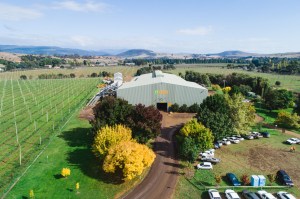
Hop Products Australia (HPA) has issued a harvest report, which includes assumed yields for its independent Australian hop growers.
The season started well in Victoria, but repetitive periods of heavy rainfall and wind proved challenging. In Tasmania, a positive start was also affected by weather. Strong plant emergence and bine growth during October and November challenged trainers, but the average summer rainfall that fell across two days in December saw soil temperature drop from 16°C to 12°C. Cascade and Enigma hops subsequently busted into burr well before normal, resulting a failure to yield as expected.
As a result, while the 2018 harvest on HPA farms delivered a 10.4% year-on-year increase in the yield of hops, the overall results have fallen short of expectations, with some yields falling 24% under budget. This result was consistent with reports from all growers in Australia this year.
While the yield of hops was lower than expected, both alpha acid and oil contents were consistent with long term averages.
The area harvested for crop 2018 measured 542.7 hectares – an increase of 21.7 hectares from crop 2017. The total yield was 1,312,673kg, up from 1,188,801kg in 2017. This means that a 4% increase in area harvested saw a 10.4% increase in yield.
Most of the increase came from the harvest of newly establishing plantings of Galaxy (756,996kg) and Vic Secret (203,167). Varieties that fell short of expectations included Cascade (33,567kg), Enigma (40,398kg) and Super Pride (85,135kg).
“As we look towards crop 2019, the current global demand for HPA proprietary varieties continues, despite some indicators of slowing segments in the important USA market,” comments Tim Lord, managing director of HPA. “Further to this, we see Australian domestic consumption continuing to increase and domestic brewing customers are encouraged to proactively communicate their changing requirements.
“We are planning the releases of some new hop varieties. After years of agronomic assessment and lots of trial brews, we are now poised to release some new flavour forward varieties (yet to be named). We have thousands of plants in pots ready to be planted in the spring and will be making announcements as these new varieties become available.”
